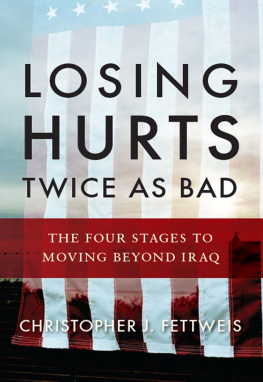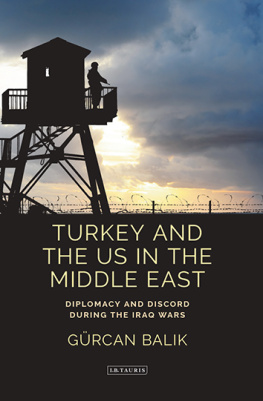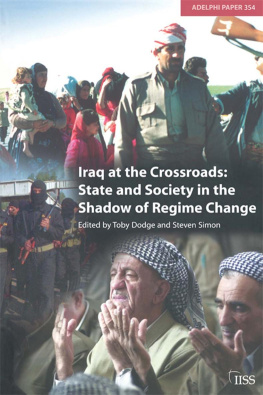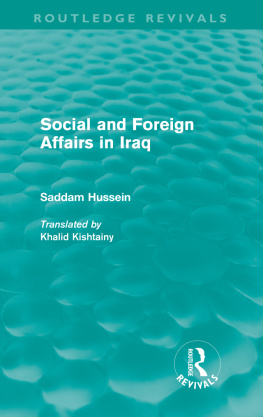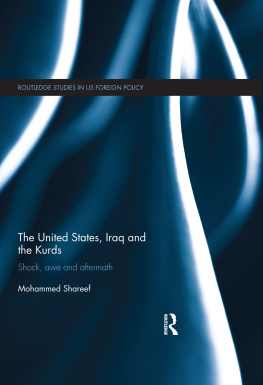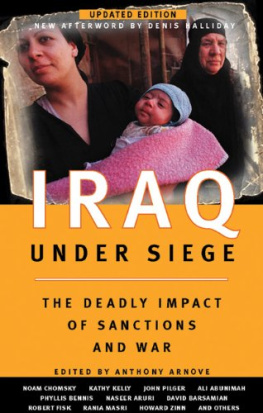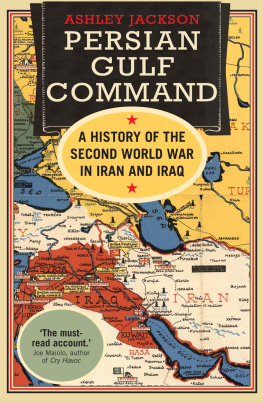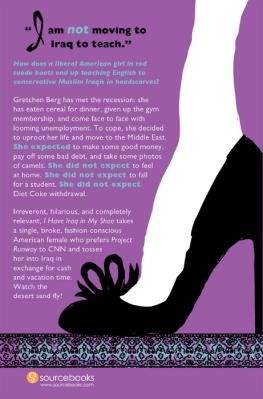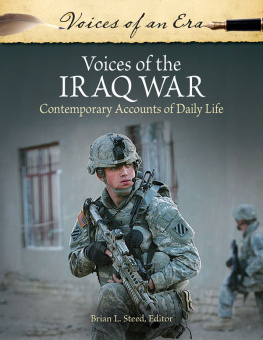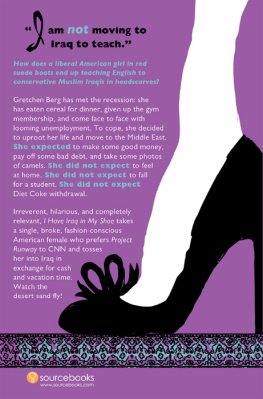Losing Hurts Twice as Bad
THE FOUR STAGES TO MOVING BEYOND IRAQ
Christopher J. Fettweis

W. W. NORTON & COMPANY
New York London
Copyright 2008 by Christopher J. Fettweis
All rights reserved
For information about permission to reproduce selections from this book,
write to Permissions, W. W. Norton & Company, Inc.,
500 Fifth Avenue, New York, NY 10110
Production manager: Julia Druskin
Library of Congress Cataloging-in-Publication Data
Fettweis, Christopher J.
Losing hurts twice as bad: the four stages to moving beyond Iraq /
Christopher J. Fettweis.1st ed.
p. cm.
Includes bibliographical references.
ISBN: 978-0-393-07049-1
1. Iraq War, 20032. United StatesPolitics and government2001I. Title.
DS79.76.F475 2008
956.7044'30973dc22
2008019795
W. W. Norton & Company, Inc.
500 Fifth Avenue, New York, N.Y. 10110
www.wwnorton.com
W. W. Norton & Company Ltd.
Castle House, 75/76 Wells Street, London W1T 3QT
for Lucy Kathleen
CONTENTS
ACKNOWLEDGMENTS
T HIS BOOK HAS benefited in no small measure from many conversations with my colleagues and students at the Naval War College. As I have repeatedly told anyone who will listen, no better place for the investigation of strategic issues exists. And there are no better people to work for than Joan Johnson-Freese and Tom Fedyszyn.
Neither they, nor the college, nor the Department of Defense can shoulder the blame for this book, however. The thoughts contained herein are my own.
I would like to thank the many people who have shaped my thinking about international politics over the years, especially John Mueller, George Quester, and the late Admiral William Crowe. In addition, several people were subjected to portions of this manuscript, and offered helpful comments and critiques.
My thanks go to Robin Rauzi, Richard Pine, Robert Weil, Lucas Wittmann, Robert Fettweis, and J. Celeste Lay for not being too tough on me.
Earlier versions of some of the books arguments have appeared in the Los Angeles Times , Survival , and Political Science Quarterly .
Chris Fettweis
Newport, RI
May 2008
Losing Hurts Twice as Bad
Introduction
SPARKYS WISDOM
I N THE 1970S, Cincinnati was home to one of the greatest teams in baseball history. The Big Red Machine, as its Reds were known, won two World Series titles with a combination of future Hall-of-Famers, outstanding role players, and notorious gamblers. One would think that the pleasure manager Sparky Anderson took in his many victories would have outweighed the pain of his few defeats. Most of us who watched them play probably dont remember them ever losing; still, they lost enough for Sparky to observe that overall, losing hurts twice as bad as winning feels good.
Sparky was describing a phenomenon that seems to be central to the human experience, one that applies with equal power to baseball, finance, and love: As a general rule, human beings are haunted by their failures to a far greater degree than they are inspired by their successes. People, even enormously successful people, tend to focus on the negative. War is no different. The winners of World War I, for example, were far less affected by their victory than were the losers by their defeat. Celebrations ended in the North after the Civil War within a few months; the South, on the other hand, still has not forgotten. For reasons that are not entirely clear, while winning may make us happy for a brief moment, losing can bother us for a lifetime.
The psychological, social, economic, and political ramifications of military failure often dwarf what a rational calculation of cost would predict. The United States absorbed the loss in Vietnam quite easily on paper, but its effects linger to this day. The Afghanistan debacle was an underrated contributor to the Soviet malaise in the 1980s and a major factor in Mikhail Gorbachevs decision to embark upon perestroika , glasnost , and the other reforms that led to the collapse of the USSR. Defeat, even in seemingly little wars in inconsequential, far-away places, can often be quite traumatic.
Losing what by all rights should have been won is especially difficult to bear. As any athlete or sports fan can tell you, defeat is that much more painful when your team (or your country) is a heavy favorite going in. For every inspirational David, every tiny Milan High School that wins the Hoosier State Basketball Championship, there is a heartbroken Goliath, or a South Bend Central High. When victory is expected but does not materialize, supporters will demand explanations, and someone will have to shoulder the blame. Although military professionals and students of history know that when guerrilla forces have the support of the population they can be a particularly formidable foe, to the general public they do not appear to be much of a match for the regular armies of mighty nations. When guerrillas winor, to be accurate, when they avoid losing for long enough that the bigger country concedesthe appearance of an upset is unavoidable.
How unfortunate it is that we insist on describing the outcome of wars using the same terms we use for sports. War is most certainly not a baseball game or a chess match, where one side emerges as the victor and the other the vanquished. To borrow a famous phrase, war is politics by other means, not a competition of national will or evaluation of our worth. It is far better described with words like success or failure of policy goals, rather than victory or defeat of the nation. This is especially true of guerrilla wars, which rarely have neat, decisive outcomes and a clear winner. The most likely outcome of the war in Iraq is prolonged, muddled ambiguity, rather than clear victory or defeat.
In the end, however, philosophical discussions about the nature of warfare will matter little. Whether appropriate or not, people interpret wars using competitive frameworks. Psychologists tell us that people are generally intolerant of ambiguity and complex judgments, preferring simple, familiar, binary categories. In war, one side wins; the other loses. One side is showered in glory; the other, ignominy. The American public will therefore tend to view Iraq as a lost war rather than a failed policy , and the consequences for the national psyche are likely to be profound.
Technically speaking, of course, the United States cannot be defeated in Iraq. The U.S. military will never lose even the tiniest of battles against the various ragtag militias, terrorists, and resistance groups that have emerged in Saddam Husseins wake. There will be no climactic, decisive engagements, and no dramatic surrenders in railroad cars or on board battleships. The war over the occupation will continue until the United States decides that it is no longer worth fighting. Just as Washington began this war at a time of its own choosing, it will also be the one to determine when it ends.
This does not mean that the war will end well, or soon. No matter when the United States decides to end this war, when the guns and bombs finally fall silent, peace will not bring victory in any meaningful sense. The war has been a political, economic, moral, humanitarian, and above all strategic disaster of the first order. The impossibility of an Appomattox, however, guarantees that the battle over its meaning and messages will rage for some time to come. For those guardians of patriotic correctness, the fact that there were no battlefield defeats will prove that the war was never really lost. But for a far greater proportion of the American people, the war in Iraq will be judged (correctly, in my view) to have been the worst kind of defeat for the United States: an unnecessary one, in a war that should never have been fought.

